The day that Invited me to a Chinese Wedding
When one travels, it does not matter if it is "Monday", "Wednesday" or "Sunday". When you travel, the days stop being a label and a number and they become "the day I got lost in China and I had unexpected encounters", "the day my camera and computer were stolen and everything was returned", "the day I met my travel companion in Thailand "," the day I tasted Indian food for the first time and fell in love with its cuisine "," the (sad) day that I was refused a visa to go to India "," The day that…".
On a trip it does not matter what day of the week it is, but it matters the content, the facts lived in those 24 hours. So when, even in China, my friend Tippi told me that we were invited to a wedding in one of the villages outside Lijiang (historic city of Yunnan Province, China), I said yes immediately and thought: I want to have "the day I was invited to a Chinese wedding" among my collection of traveling days.
I confess that for a while I thought "but ... what am I going to wear?", Although five minutes later that question was eclipsed by "what will a Chinese wedding be like?". And it was not going to be any marriage, but the marriage of two people belonging to one of the many minority groups in China. Accustomed to Argentine marriages, I also wondered what music will happen? How will they be dressed? Will it be very formal? Will there be carioca-chino carnival? :)
The big day was Thursday. Tippi's boyfriend left early to film the marriage that had started at around 9 in the morning. We had planned to go in the afternoon, but he called us on the phone and told us to hurry because we were going to run out of food. So we went to the village, 15/20 minutes from the city of Lijiang, after noon. I put on a long Indian print polo shirt that I had bought in Malaysia, but we were both quite informal.
When we arrived at the village, the first thing we saw was a group of women sitting outside a kiosk playing cards with a mallet I never saw in my life. They invited us to sit with them and one told Tippi that he wanted to introduce me to his son so that I could stay in the village. I wanted to take one of those letters, just one, souvenir ...
We walked a little and we recognized the house where the wedding was celebrated because we saw the bride's car parked at the door (a rare mixture of Western traditions and Eastern marriage) and many cars scattered on the dirt road.
We entered without permission as who enters his own house and the first thing I saw was people eating wild and talking to the screams. Tippi explained that we were in the house of the parents of the bride, since the first part of the wedding was held there and the second part would be in the house of the parents of the groom, where both (husband and wife) would live from there in plus.
In that wedding I saw women dressed in their minority clothes, some men in jeans, a few in suits, lots of plates of food circulating between the tables, sunflower seeds scattered on the floor, decks of forgotten cards in a corner, plastic cups trodden , women cooking outdoors, women washing dishes at the door of the house.
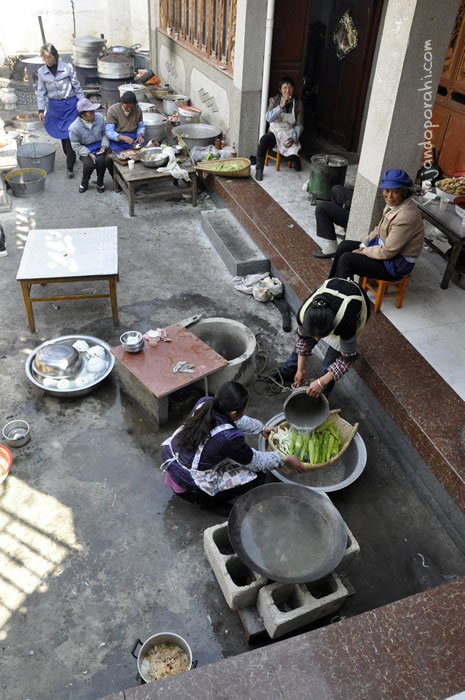
And finally, to the couple:
The women invited us to sit down and they poured us loads of food. They told me to try everything and eat until burst. And just as the food arrived at once, it was gone. After having lunch more than we could, it was time to move to the house of the groom.
Although first the girlfriends and friends of the bride complied with the ritual: she went into her room with all her friends and closed the door, a few minutes later, the men hit making a lot of noise, opened and took out the bride. With that they symbolized the passage of living in the house of their parents to go and live with their new husband in another house.

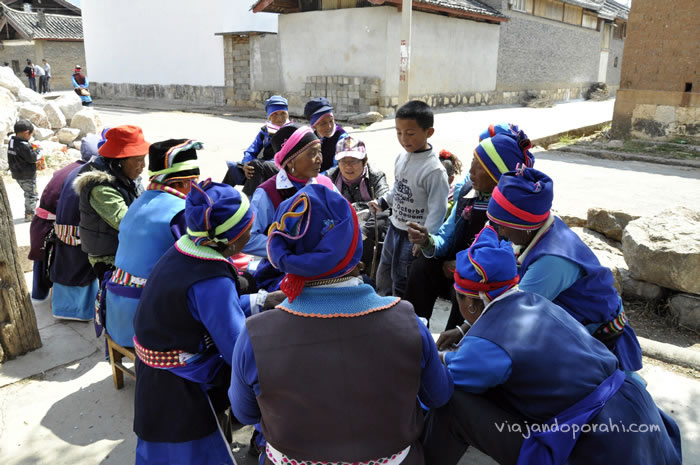

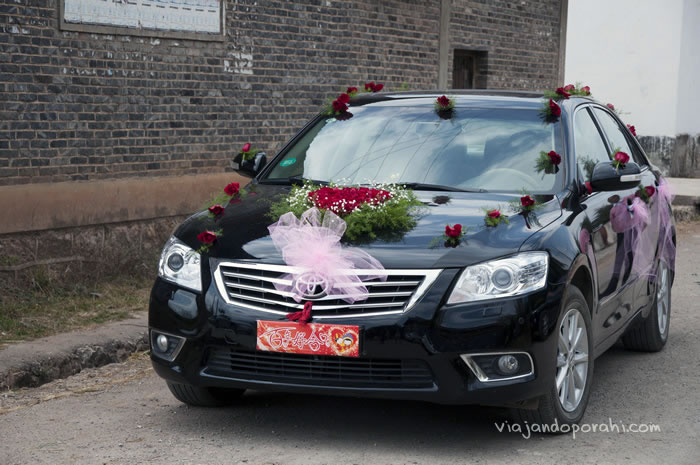

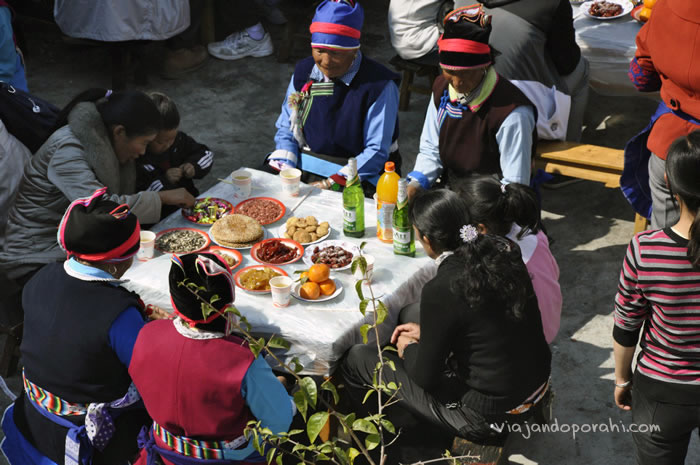

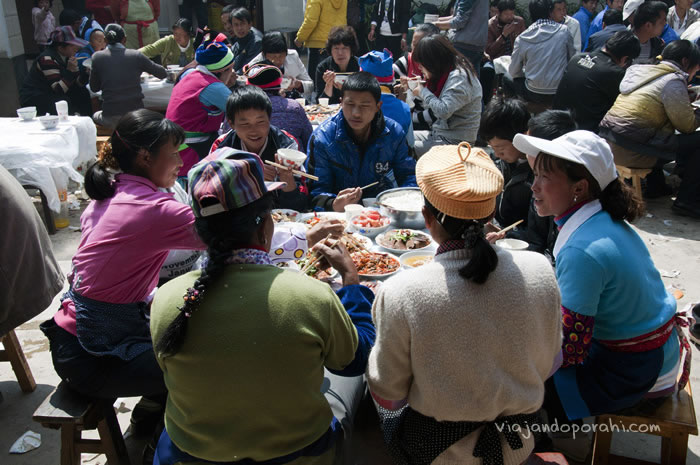


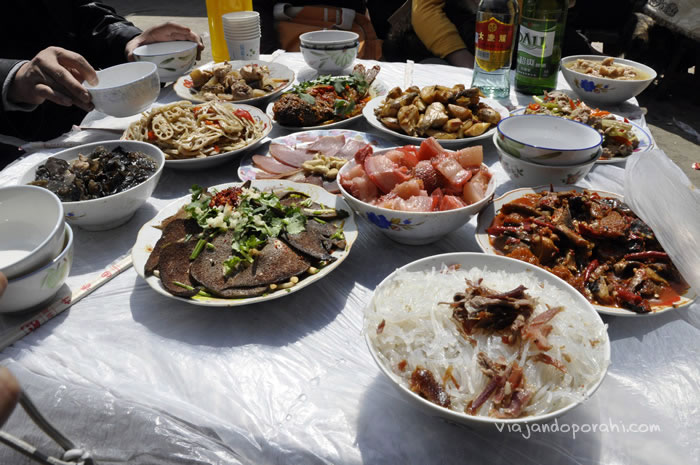

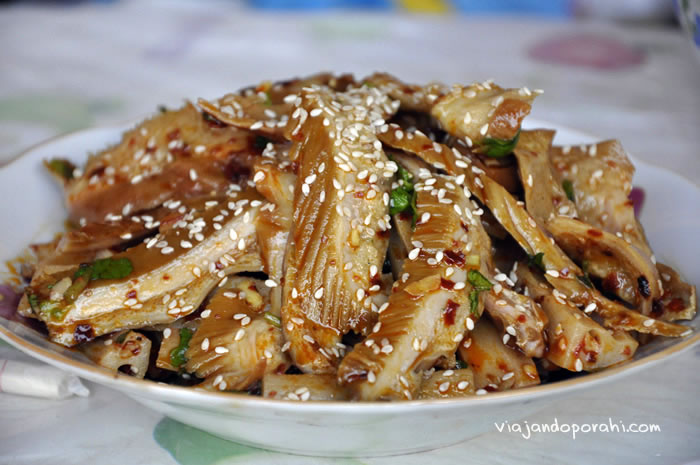

Nice post 🤗🖒🖒🖒
thank you friend